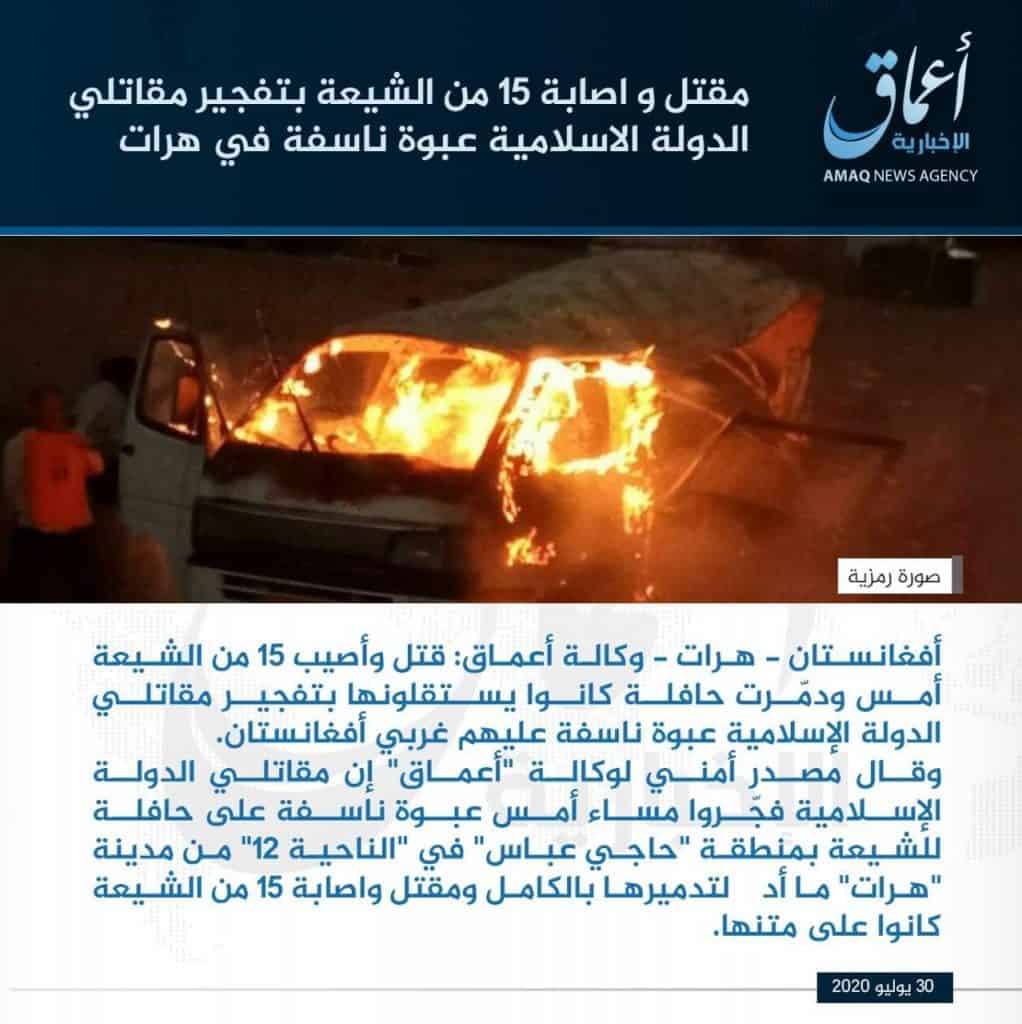
The Islamic State’s Khorasan province has claimed responsibility for a prison raid in the eastern Afghan city of Jalalabad.
The attack began yesterday when a suicide bomber detonated a vehicle-borne improvised explosive device (VBIED) at the gates of the prison. A team of jihadists then stormed the facility, leading to a prolonged siege that lasted approximately 18 to 20 hours.
Jalalabad is the capital of Nangarhar, an eastern province the Islamic State has operated in for years. At one point, the so-called caliphate’s men controlled several districts in Nangarhar, only to lose ground in battles with the U.S. and Afghan forces, as well as their jihadi rivals in the Taliban.
Initial casualty reports say that 29 or more people were killed, while dozens more were wounded in the prison assault.
According to TOLOnews, the police chief of Nangarhar, said that eight attackers were killed during a firefight with security forces.
At this point, it is not clear how many prisoners escaped. The Associated Press reports that the facility holds “about 1,500 inmates, of which several hundred are believed to be ISIS members.” Afghan officials claim that roughly 1,000 prisoners were found and taken back into custody after their escape into the city. But the situation is fluid and there is still much uncertainty.
The Islamic State initially claimed responsibility for the attack via its Amaq News Agency. The group then issued a longer statement, identifying the suicide bomber as a foreign fighter who immigrated to Afghanistan for jihad. The jihadists claim that hundreds of inmates were freed, while 100 or so policemen and Afghan soldiers were killed. Those figures have not been confirmed, however, as independent accounts indicate there were fewer casualties.

On July 30, the Islamic State’s Wilayah Khorasan (or Khorasan “province”) claimed responsibility for a rare bombing in Afghanistan’s western Herat province. Via its Amaq News Agency, the self-declared caliphate claimed its “soldiers detonated a sticky bomb against a bus carrying polytheist rejectionists in Sector 12 of the city of Herat.”
The Sunni jihadists consistently refer to Shiites as “polytheist rejectionists,” as they seek to export their sectarian focus from Iraq and Syria to Afghanistan, as well as other countries. Amaq’s media team initially claimed that 15 Shiites were “killed or wounded” on the bus. The number of casualties climbed in the hours following the explosion, with The New York Times reporting that 35 civilians were killed and dozens more injured.
The Islamic State portrays both the prison raid and the bombing in Herat as part of its ongoing “Battle of Attrition,” a worldwide campaign that is intended to demonstrate the group’s resiliency and cohesion despite multiple setbacks.







